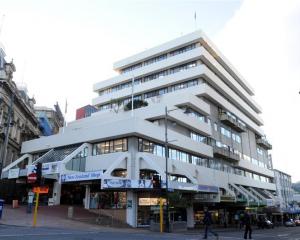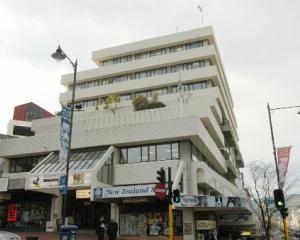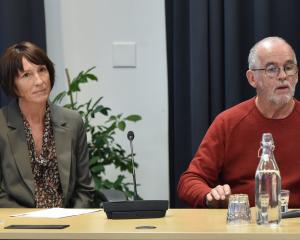The Dunedin City Council was warned about leaky home faults in a half-million dollar house in Dunedin, but signed off on the house anyway - the very next day.
Documents obtained by the Otago Daily Times show council building control staff were faxed a weathertightness expert's report on May 23, 2005, listing at least 15 design and construction faults at 36 Leithton Close, Glenleith.
The report, by Theo Marlow, of Flanders Marlow, concluded the home had numerous "at risk" features that raised potential weathertightness issues.
The faults had the potential to allow moisture in, and there was evidence some moisture was already entering the home.
The report also noted the house - which was on the market at the time - did not have a code of compliance certificate from the council to confirm it met New Zealand Building Code requirements, despite being built in 2001.
The report recommended a copy of the certificate be sought from the owners selling the home at the time, as required by law.
Records obtained by the ODT show staff signed off on the home's code of compliance certificate the day after the council received the report.
Fast forward to November last year, and the home was again on the market until snapped up by Michael Beazley and opera singer Deborah Wai Kapohe, who paid $550,000.
The couple decided to buy it after checking it had a code of compliance certificate, but days after moving in discovered leaks, cracks, toxic mould and other faults emerging inside their dream home.
The couple told the ODT there was no way faults identified in the 2005 report could have been checked and repaired in the one day it took council staff to sign off on the home after receiving the report.
"They definitely weren't addressed before the code compliance was given," Ms Wai Kapohe said.
She said their discovery added to their case against the council, as they considered a possible court challenge to seek costs.
Ms Wai Kapohe obtained a copy of the faxed 2005 report after the couple moved in, and only after using official information legislation to request more information from the council about their home.
Mr Beazley said they now wanted the council to buy their home, allowing them to relocate with their two children.
Council chief building control officer Neil McLeod declined to comment when contacted this week, and council city environment general manager Tony Avery declined to discuss the detail of their claims through the media.
Mr Avery did confirm the 2005 fax had been received by council staff, but could not say how it was handled at the time.
An investigation looking at how council staff handled the home's inspections and paperwork - including the 2005 fax - would form part of the council's response to the Weathertight Homes Resolution Service (WHRS), he said.
The couple lodged a claim with the WHRS earlier this year, leading to testing by an inspector last month, but are still awaiting a final report on whether their claim has been accepted.
"We will be fully co-operating ... and all those sorts of issues will form part of that assessment or review. That's where it will be dealt with," Mr Avery said.
He also noted the council had already made "substantial changes" to its internal systems and processes, including staff changes, since the house was signed off in 2005.
The $550,000 home was sold to the couple through Metro Realty.
The previous owner was Dr Alan Payne, the former head of department at the University of Otago School of Dentistry.
Dr Payne declined to comment when contacted by the ODT, but in a letter to the couple said he carried out "meticulous" maintenance and repairs to prevent leaks.
Ms Wai Kapohe said the repairs "haven't worked".
"You really can't target-repair a leaky home, because they are a systemic failure. Target-repairing them is pretty much useless, so it continues to leak," she said.
The couple's decision to buy the home without obtaining an independent building report was questioned by Metro Realty managing partner Mark Stevens.
Mr Stevens said a two-page report - also written by Mr Marlow - addressing the possibility of weathertight issues at the home was given to the couple prior to their decision to purchase the home.
The report noted "at risk" issues and faults, discussed steps taken to fix them and recommended maintenance to "assist in reducing the risk associated with weathertightness".
It referred twice to Mr Marlow's earlier 2005 report, and concluded no guarantee or warranty of the home's ongoing weathertightness could be given, and neither could the possibility of repairs being needed some time in the future be discounted.
The Real Estate Agents Act (Professional Conduct and Client Care) Rules 2009 stated an agent could not mislead a customer or withhold information "that should by law or fairness" be provided to a customer.
Mr Stevens said his company was aware of possible weathertightness issues at the home and would not sell it, or any other home in a similar condition, without first instructing the vendor and purchaser to obtain independent reports.
Mr Stevens said the company did not keep a copy of the 2005 report, and was not allowed to distribute out-of-date information anyway.
It was required to update the 2005 report, which led to Flanders Marlow preparing the two-page report last year, he said.
Mr Beazley had signed to say he had received the two-page report, Mr Stevens said.
"He has all the information we have. We also encouraged him to get an independent builder's report, but they chose not to.
"I'm not sure what else we can do ... we can't tell a person anymore than we already know."
Ms Wai Kapohe said the two-page report minimised the home's faults and was "inadequate", whereas the earlier 2005 report discussed concerns in greater detail.
She also said the couple was ignorant of New Zealand's leaky home problem, and did not understand the extent of the problems discussed in the two-page report.
Invercargill-born Ms Wai Kapohe and Mr Beazley, an Australian, moved to Dunedin last year after six years together living in Australia.
"To us ... a leak was a leak. It was just a drip that came through the roof. But a leaky home has a totally different connotation," she said.
Mr Stevens said it was "not for me to agree or not agree" problems were minimised.
His company relied on expert advice.
"We certainly didn't know any more than the expert knew about that property. We are quite sure we met our obligations.
"It certainly raises issues, but that's not our responsibility. You'd have to talk to the council."












